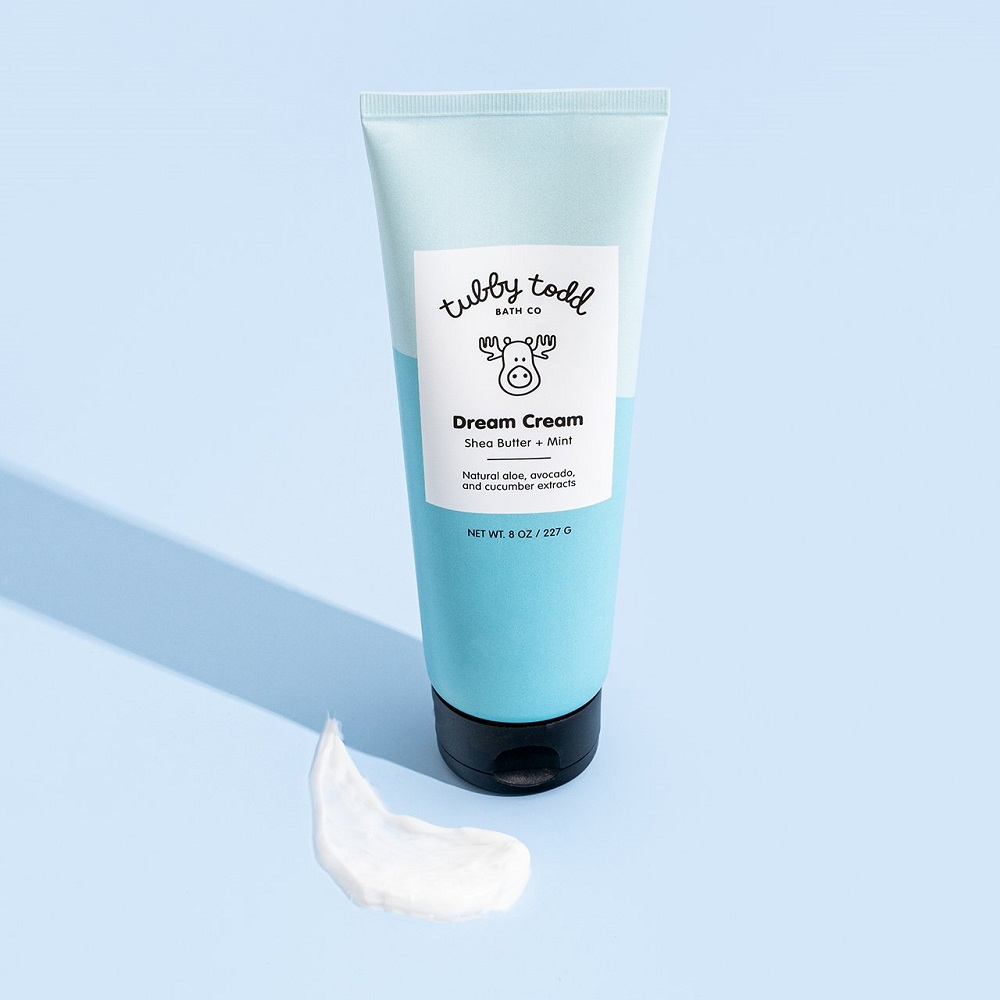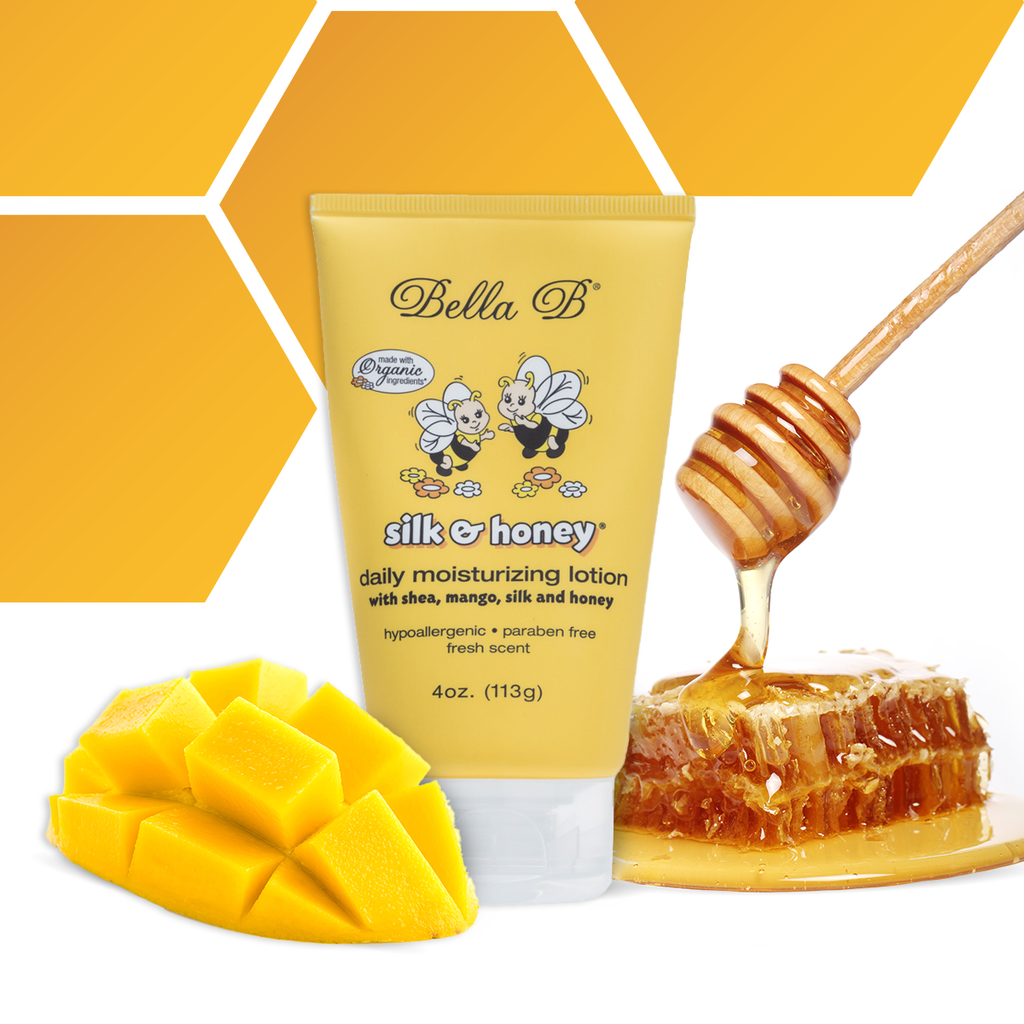The list of best baby face creams you need to purchase for your new baby (or baby-to-be) may seem endless, but in reality, you'll only use a select few of them on a daily basis, and for some, the baby lotion is one of those things. Use the best baby face cream on your infant if you see dry skin, just as you would use it on yourself. According to Marisa Garshick, MD, a dermatologist at Medical Dermatology & Cosmetic Surgery (MDCS) in New York City, newborns' skin is thinner than adults' and hence more susceptible to dryness, water loss, and irritation. Although it is generally advised to avoid using anything that can irritate your baby's skin, you may discover that your infant needs the best baby face cream.
These are the Current Best Baby Face Cream
1. Tubby Todd Bath Co Dream Cream

Tubby Todd Bath Co Dream Cream
Dream Cream best baby face cream by Tubby Todd Bath Co. has a creamy, nongreasy texture and absorbs readily because of its high concentration of green ingredients, including aloe, avocado, and cucumber. A mother of two children, aged 4 and 7, reported seeing improved skin texture almost immediately.
2. Bella B Silk & Honey Daily Best Baby Moisturizers

Bella B Silk & Honey Daily Best Baby Moisturizers
Keeping their child's skin smooth all night and throughout the following day, one parent gave Bella B Silk & Honey Daily Moisturizing's best baby face cream a perfect score of 15 out of 10. Even pregnant ladies love the mildly perfumed product with aloe vera, avocado, and shea.
3. Baby Magic Gentle Baby Lotion
Baby Magic Gentle best baby face cream comes in a classic pink container and has a familiar powdery aroma, but it's also packed with skin-soothing ingredients like aloe and vitamins A and E.
4. Suave Kids 3-in-1 Shampoo, Conditioner, and Body Wash With 100% Natural Lavender
The Suave Kids 3-in-1 Shampoo best baby face cream, Conditioner, and Body Wash with 100% Natural Lavender is a multi-purpose product that may be used on your child from head to toe. They won't go through it as quickly if it comes in a pump bottle, and the calming aroma can help children relax before bed.
5. Mustela Stelatopia Cleansing Gel
Families whose children are prone to eczema confirmed that the silky-smooth Mustela Stelatopia Cleansing best baby face cream, specially formulated to prevent severe best cream for a baby's dry and sensitive skin, also reduces irritation.
6. Tots by Babyganics Detangling Spray
Users who tried the Tots by Babyganics Detangling Spray for the sake of this review were hooked immediately. 'It made a brush glide over my toddler's hair, brought out her curls, and gave them more bounce,' claimed a mother of a two-year-old. Make use of it whether your hair is wet or dry. The mixture, which includes organic chamomile, doesn't need rinsing.
7. Made Of Organic Diaper Rash Cream
The organic argan oil, lavender oil, and avocado oil in Made Of Organic Diaper Rash Cream made the testers feel fantastic. The zinc oxide content of 14% helps relieve itching caused by rashes.
8. Badger Zinc Oxide Diaper Cream
According to reviews, Badger Zinc Oxide Diaper's best baby cream keeps babies' bottoms dry without leaving a chalky film on a caretaker's hands. In addition to the zinc oxide, the organic calendula, beeswax, sunflower oil, and vitamin E all contribute to preventing subsequent outbreaks.
9. CeraVe Baby Hydrating Sunscreen SPF 45
One mother claimed that the premium CeraVe Baby Hydrating Sunscreen SPF 45 "did not disappoint," adding that despite containing the sun-blocking minerals titanium dioxide and zinc oxide, the nourishing sunscreen lotion didn't leave a ghostly white tinge. For up to 80 minutes, it can withstand light rain or drizzle.
10. Aquaphor Baby Healing Ointment
Garshick recommends using a petroleum-based ointment for very dry newborn skin. You've probably heard of Aquaphor before, and you know it's a fragrance- and preservative-free ointment. Garshick explains, "It includes panthenol and glycerin to help hydrate and nourish the skin, and it contains 41 percent petrolatum, which helps to protect the skin." It's not only for dry skin; it's great for protecting the skin around the diaper region and on minor scrapes and wounds, too.
Calling your child's physician should be your first course of action if you have any worries or concerns about your child's health, particularly their skin. Particularly, you should be on the lookout for indicators of redness and irritation, such as itchy patches, which may appear on any area of the body, including the arms, elbows, hands, chest, and knees, among other places. Even though the diaper region is very sensitive, rashes often appear there. Don't be afraid to call your child's physician anytime if you have any worries or concerns.
Frequently Asked Questions (FAQs)
Q1. Is it possible that my baby's food is causing his dry skin?
Indeed, just as your food may affect your skin, the diet you give your kid can affect their skin. A sufficient intake of a wide range of important nutrients is necessary for maintaining good skin. If you are breastfeeding, this will come from your breastmilk; if you are formula-feeding, it should come from the formula. If you are bottle-feeding, this will come from your breastmilk.
According to Leslie Solomonian, a naturopathic physician and associate professor at the Canadian College of Naturopathic Medicine, atopic dermatitis, often known as eczema, may be induced by nutrition, which can manifest itself as dryness. Solomonic notes that this might be confusing to patients. Talk to your child's physician if you are worried that a certain meal may be having an effect on their skin or if you are concerned about their skin in general even though they are receiving the appropriate nutrients.
Q2. Should I take my child to see a pediatric dermatologist?
If you have skin problems that don't seem to be going away on their own, it's time to get a professional opinion. "If there is a problem that does not resolve on its own, it is always excellent to have a professional healthcare practitioner check your baby's skin," adds Solomonian. "It is always good to have your baby's skin assessed by a knowledgeable healthcare provider." If your infant is experiencing persistent dryness, redness, itching, or a visible rash, you should take him or her to the pediatrician so that they can identify the next best actions.
Q3. When should I apply lotion to my infant, and how frequently should I do it?
You may use lotion on your baby's skin whenever and wherever the skin is dry as long as the lotion is mild and created with safe chemicals. It allows you to apply lotion whenever and wherever the skin is dry. It is important to keep in mind that less is more and that the majority of infants do not need lotion to begin with.
According to Solomons, the best time to apply lotion to your child's skin is immediately after bathing them. It will allow their skin to retain the most amount of moisture possible. If you choose to put lotion on your child, consider doing it after bath time. She suggests making an appointment with your physician if you notice that your baby's skin is sensitive or dry regularly and that the lotion you're applying does not help to alleviate the pain.

